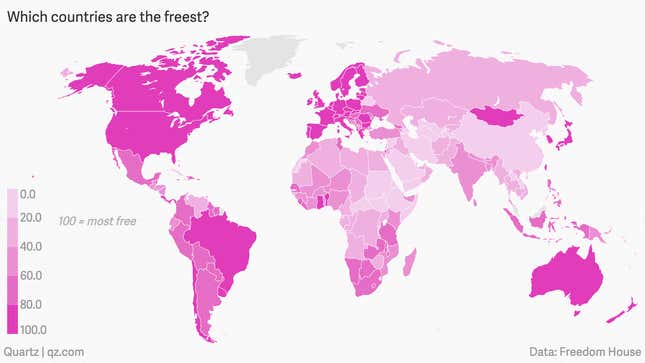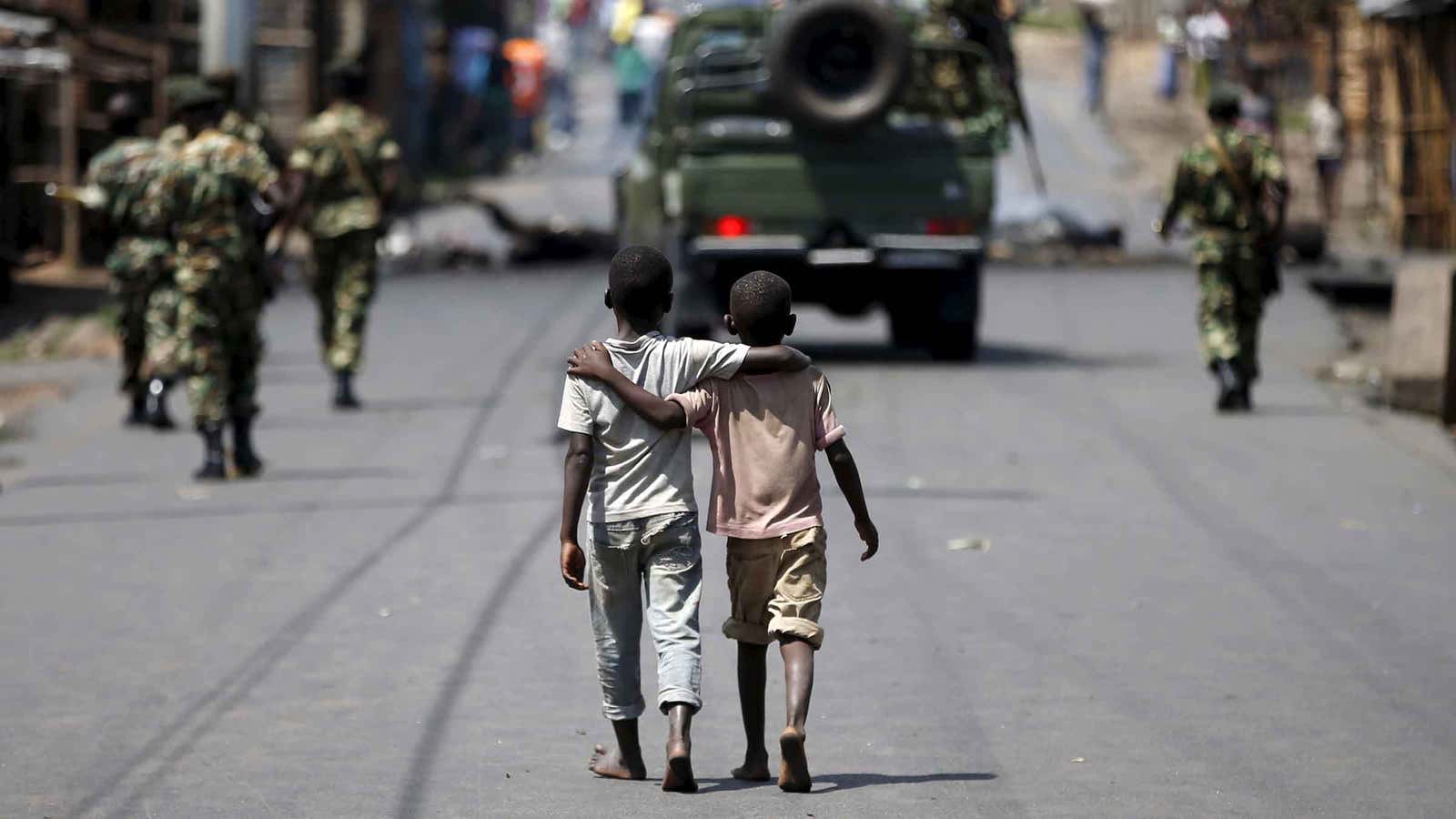Freedom for civilians worldwide declined last year to at least a 10-year low, according to Freedom House, a civil liberties and human rights group.
Liberties such as freedom of expression and rule of law slipped on aggregate for the 10th consecutive year, the US non-governmental organization reported. “The world was battered in 2015 by overlapping crises that fueled xenophobic sentiment in democratic countries, undermined the economies of states dependent on the sale of natural resources, and led authoritarian regimes to crack down harder on dissent,” it stated in a report (pdf).
Key drivers of this downturn are the migration crisis sparked by the Syrian civial war, which continues to unsettle even liberal rich nations, and China’s slowdown, which is causing headaches across the developing world.
Syria, the report notes, “represents the most complex challenge to peace and stability in years, and thus far the leaders of the free world have fallen short even as fundamental democratic principles come under threat in their own countries.”
Meanwhile, China’s slowdown is “slashing the export revenues of dictatorships around the world and threatening the economic underpinnings of their legitimacy,” which is leading to brutal crackdowns on critics and rights activists.
Human Rights Watch, a separate NGO, published a similar report yesterday (Jan. 27). It too links restricted rights worldwide to the migrant crisis and increased terror attacks outside of the Middle East.
Freedom House divides countries into those that are “free,” “partially free,” or “not free.” A nation’s score is calculated via 25 separate indicators, adding up to a maximum score of 100. Here, we can see which countries are closest to the top:

In the past decade, the proportion of countries deemed “free” has declined from 46% to 44%. Meanwhile, there was a rise in the number of countries labelled “not free,” from 24% to 26%. Countries classified as “partly free” remained stable:
There were areas in which freedoms increased, too. Aung San Suu Kyi’s victory in Myanmar’s national election represented major progress for liberties there, while elections in Venezuela and in Argentina also signaled a potential easing of the controls imposed by long-serving governments.
Four out of the five countries that saw the most dramatic increase in freedoms were in Africa, while the countries that saw the biggest decrease were spread around the world:
Unfortunately, African countries also dominated the list of the least free nations (and regions) overall, while Scandinavia was well represented at the top:
The US received a score of 90, putting it in 44th place.
